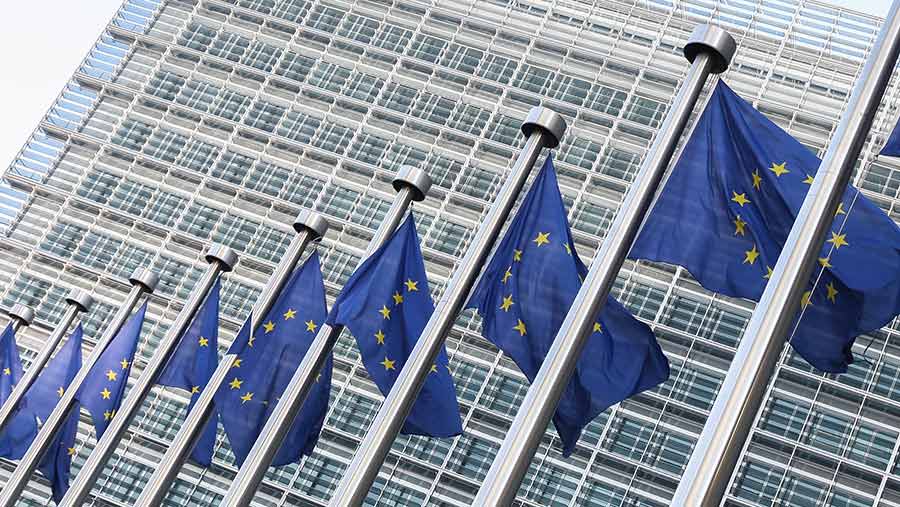UK farm unions seek to strengthen ties with Brussels
 © Adobe stock
© Adobe stock Trade, technology, the environment and animal welfare top the agenda for the four main UK farm unions as they seek to strengthen their relationship with the EU on key agriculture policy.
The British Agriculture Bureau (BAB), which collectively represents the NFU, NFU Cymru, NFU Scotland and the Ulster Farmers Union in Brussels, has reaffirmed its desire to work closely with farmers across the Continent following the UK’s exit from the EU last year.
See also: Trade and farm policy enter new era outside the EU
In a new report, Building our new relationship with Europe (PDF), the four union presidents stress that “it has never been more important for farmers across Europe to work together as we collectively face challenges on a global scale”.
On trade, the report says UK policy must respect domestic production standards and support a strong, competitive agricultural industry.
To encourage innovation and improve competitiveness, the report calls for policy that is science and evidence led. Likewise, with animal health and welfare policy, research and evidence must be central to decision making.
And on the environment, the report says improvements in productivity through more efficient and careful use of natural resources can reduce farming’s emissions and environmental footprint, but this will only happen if farm businesses are given the policy framework they need to adapt.
The four presidents of the UK farm unions said: “World-leading food production must continue to be at the heart of everything we do.
“We have a huge amount of work ahead of us, and the nature of that work is evolving.
“UK farmers are committed to working together, at both a national and international level, to embrace and follow the latest science and innovation, to seek new trading opportunities and defend our high standards.”
CAP reform
On Thursday (2 December) the agreement on the latest reform of the common agricultural policy was written into law.
The new five-year funding round starts on 1 January 2023 and EU member states are being given greater flexibility in the way they support their farmers and draw down EU money.
The direction of travel appears similar to the changes planned in the UK, with less money for direct payments and more for environmental schemes.
But Irish Farmers Association president Tim Cullinan said that the agreement was “a bad deal for Irish farmers”. Last weekend the IFA organised a major demonstration in Dublin against the reforms.
EU urges shift away from live animal transport
A European Parliament committee set up to investigate alleged animal welfare violations during transport has found that EU rules are outdated, misleading and poorly enforced.
The inquiry concluded that the EU needs to improve animal welfare during transport and recommended a shift away from live animal transport, more control on exports, and a ban on transporting very young animals.
It reflects a previous announcement by Defra and the Welsh government that live animal exports for slaughter would be banned, journey times in England and Wales shortened, and stricter rules on temperature and headroom in lorries introduced, following a 12-week consultation that closed in January.
